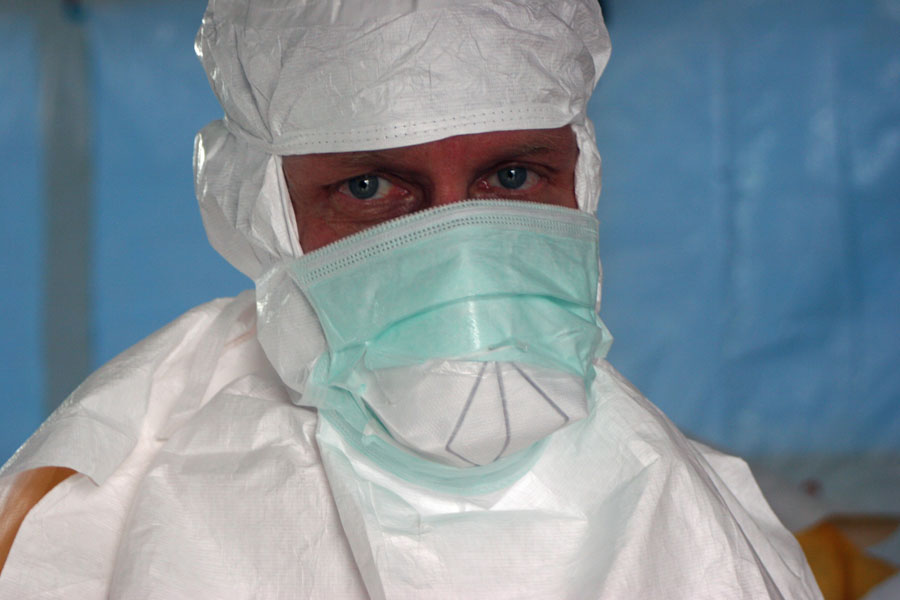The staff in hospital can be seen wearing two face masks on top of each other.
The idea of wearing two face masks on top of each other is promoted by Dr. Antony Fauci, who serves as the director of the U.S. National Institute of Allergy and Infectious Diseases and the chief medical advisor to the US president. According to him it is common sense to wear two masks instead of one.
Wearing two face masks on top of each other can make it worse. The important is that the air breathed in and out gets filtered through the masks. Therefore, the masks have to seal and fit well to the face, otherwise the air will slip unfiltered between the mask and the face. When wearing two masks on top of each other, then it increase the resistance of the air to get through the filtering material of the mask, which will make more air to slip unfiltered between the mask and the face that will make it worse.
Binghamton University mechanical engineering assistant professor Scott Schiffres, PhD, who’s been working on testing masks since the COVID-19 pandemic began, said that increasing protection isn’t just about adding more layers of filtration.
If the masks are worn in a way that compromises the fit of the masks on the face, this may allow unfiltered air to leak through gaps.
For example, wearing two surgical masks won’t be better than one, Schiffres said.
“It is not the ability of the filter that limits performance,” he said, “but the fit to the face (how much air leaks at the face seal).”
“The surgical mask material itself is very good (>95 percent at 0.1 um), but in practice about 20 percent of the air will slip between the mask and the seal of the mask, so the efficiency would effectively be about 80 percent,” Schiffres said.
“If you were to just put two surgical masks one on top of another, more of the air would actually leak around the seal as the resistance through the masks increases, and even less air would be filtered, making this double masking detrimental,” he said.
“The most important thing,” Schiffres said, “is not to have a false sense of confidence in the filtration of the mask, as it can only be as good as the fit to your face allows.”
(www.healthline.com - Are 2 Masks Better Than 1 at Preventing COVID-19 Spread? What to Know)
One of the don'ts published by WHO is: “Do not use a mask that is difficult to breathe through”.
Furthermore, according to the European Centre for Disease Prevention and Control (ECDC) medical face masks is believed to only have a small or moderate effect to prevent COVID-19 in the community. There is no reliable proof of effectiveness for the public to use non-medical face masks, face shields/visors and respirators.
The evidence regarding the effectiveness of medical face masks for the prevention of COVID-19 in the community is compatible with a small to moderate protective effect, but there are still significant uncertainties about the size of this effect. Evidence for the effectiveness of non-medical face masks, face shields/visors and respirators in the community is scarce and of very low certainty.
(ECDC: Use of face masks in the community by non-ill individuals)
Facts:



